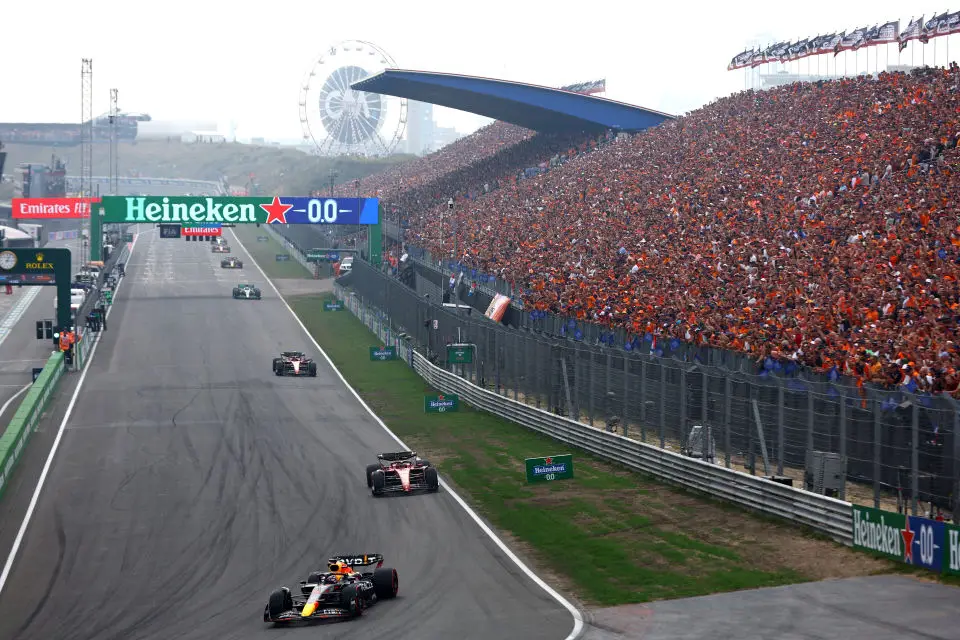Fernando Alonso Criticizes F1 Regulations, Citing Red Bull’s Unprecedented Dominance
Fernando Alonso expressed his concerns over the current Formula 1 regulations, attributing Red Bull Racing’s recent overwhelming success to regulatory failures. The two-time world champion highlighted the unintended consequences of new rules aimed at tightening the grid.
Key Takeaways:
- Red Bull’s Domination: Red Bull’s dominance in Formula 1 has become more pronounced with the team winning 24 of the last 25 races, including a perfect 14/14 this season, a trend that Fernando Alonso attributes to recent F1 regulation changes.
- Regulation Impact: The new ground effect aerodynamic regulations, introduced to close the gap between teams, have paradoxically led to Red Bull’s unparalleled success, rather than the intended closer competition.
- Alonso’s Viewpoint: Alonso, speaking to Cadena Ser’s El Larguero, acknowledged the benefits of the new regulations in terms of reducing turbulence and tightening the mid-grid competition but criticized their failure in curbing Red Bull’s dominance.

Fernando Alonso, the seasoned Formula 1 driver currently with Aston Martin, has pointed a critical finger at the sport’s regulatory body, claiming that the new regulations, although well-intentioned, have failed in their primary objective. The regulations, which were aimed at making Formula 1 more competitive and reducing the gap between leading and trailing teams, have instead facilitated Red Bull Racing’s unprecedented string of victories.
Alonso’s comments come as the Formula 1 circus prepares for the Singapore Grand Prix. This season, Red Bull has not just been dominant but unassailable, winning all 14 races so far. This streak of victories follows their strong performance in the 2022 season, where they won 17 out of 22 races, clinching both the drivers’ and constructors’ championships.
The new ground effect aerodynamic cars were introduced last year to foster closer racing and more overtaking opportunities. While they have somewhat succeeded in tightening the mid-field battle, as Alonso points out, the top of the grid remains largely unchallenged, with Red Bull in a league of their own.
Max Verstappen, Red Bull’s lead driver, currently holds a substantial 145-point lead over his teammate Sergio Perez. This gap underscores the sheer level of performance that Red Bull has managed to achieve under the new regulations.
Alonso’s detailed critique offers a nuanced view of the situation. While he acknowledges the positive aspects of the new regulations, such as reduced turbulence and a tighter mid-grid, he does not shy away from highlighting the overarching issue: Red Bull’s domination, which was not anticipated or desired by any new regulation.
In his own words, Alonso expressed both admiration and concern for Red Bull’s current form: “They are the best at everything: they have the fastest car and driver, they don’t make mistakes, they make the fastest pit stops, the best starts, the best strategies. At the moment they have no weak points.”
As the Formula 1 community continues to grapple with these challenges, Alonso’s comments add an important perspective to the ongoing discussion about the sport’s direction and the impact of its regulations. The ultimate question remains: how will Formula 1 evolve to ensure a more competitive and unpredictable racing environment?



